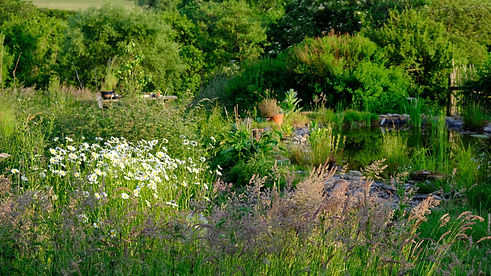
Be Prepared

A Home for All Seasons
Over half of UK homes (15.7 million) fail the ‘bedroom overheating’ test, impacting health, sleep, and productivity – a number set to rise with increasing temperatures, according to a report commissioned by the Climate Change Committee.
Homes with a room in the roof are especially vulnerable to overheating. Properly insulating the eaves can help keep the summer heat out and the winter warm in, improving comfort year-round while lowering energy use and reducing fuel bills. Find expert guidance on insulating an attic room.
For summer cooling, shade sails offer an affordable, semi-permanent shading solution, especially for south-facing walls, and like all external shading solutions, are much more effective at keeping the heat out than internal blinds and curtains.
For a permanent fix, a brise soleil an external sun-shading structure acts like a half open venetian blind, blocking out harsh summer sun while allowing natural light.
For an extensive guide to shading, cooling, blinds, shutters, inside and out, visit the comprehensive guide by retired energy expert Mark Thompson: Tips, tricks, do’s and don’ts to keep a home cool in summer
A Garden for All Extremes
The Royal Horticultural Society (RHS) has produced an inspirational report about gardening in a changing climate which shows how our gardens can help us to cope with a changing climate, providing physical and mental relief from extreme weather. Unfortunately, one in eight UK households lacks access to a garden, increasing their risk of overheating.
Met Office projections predict hotter, drier summers, warmer, wetter winters, and more frequent, more intense rainfall.
Future-proof your garden by:
-
Planting heat-tolerant trees.
-
Installing more water butts to store rainwater for dry spells.
-
Exploring drought-resistant gardening with RHS-approved solutions.
Start planning now to keep your garden resilient in a changing climate.


Reduce Flash Flooding with Permeable Paving
Droughts can turn bare ground into hard impenetrable surfaces so when heavy rain comes it runs off causing flash floods. Paving front gardens worsens this, while reducing hard surfaces helps absorb water, protecting properties and preventing street drains being overwhelmed.
Permeable paving, advocated by the Royal Horticultural Society (RHS), is an effective solution. Gravel gardens also lower flood risk and boost wildlife, one of many climate-friendly gardening solutions recommended by the Wildlife Trusts.
Greening front gardens isn’t just good for the environment – it can also enhance mental well-being. Learn more from the RHS Front Garden Research: Greening Grey Britain.
The Public Realm: Cooling Cities & Reducing Flood Risk
Cooling Urban Heat Islands
Green spaces such as parks, woodlands, and gardens, help to cool urban heat islands in cities, reducing surrounding air temperatures by 1.5–3.5°C, according to a 2020 study reported by Public Health England, along with multiple other health benefits of access to green space.
Reducing Flood Risk
A major, nationally important trial to reduce flood risk due to heavy rain is underway in Mansfield, Nottinghamshire. Seven Trent Water is working with the County and District councils to create a Sustainable Drainage System (SuDs), turning acres of tarmac into green space and permeable surfaces, and allowing storm water to slowly and safely soak away.
This is will eventually create 20,000 green pockets, which will also provide cooling in summer, improve biodiversity, and offer nature in the heart of the town for people to enjoy.
Innovative Cooling Solutions
Cities worldwide are tackling rising temperatures in new and creative ways. Reasons to be Cheerful a non-profit magazine, recounts stories of global "cool projects" that are dialling down the temperate in urban spaces in the face of a warming world.
